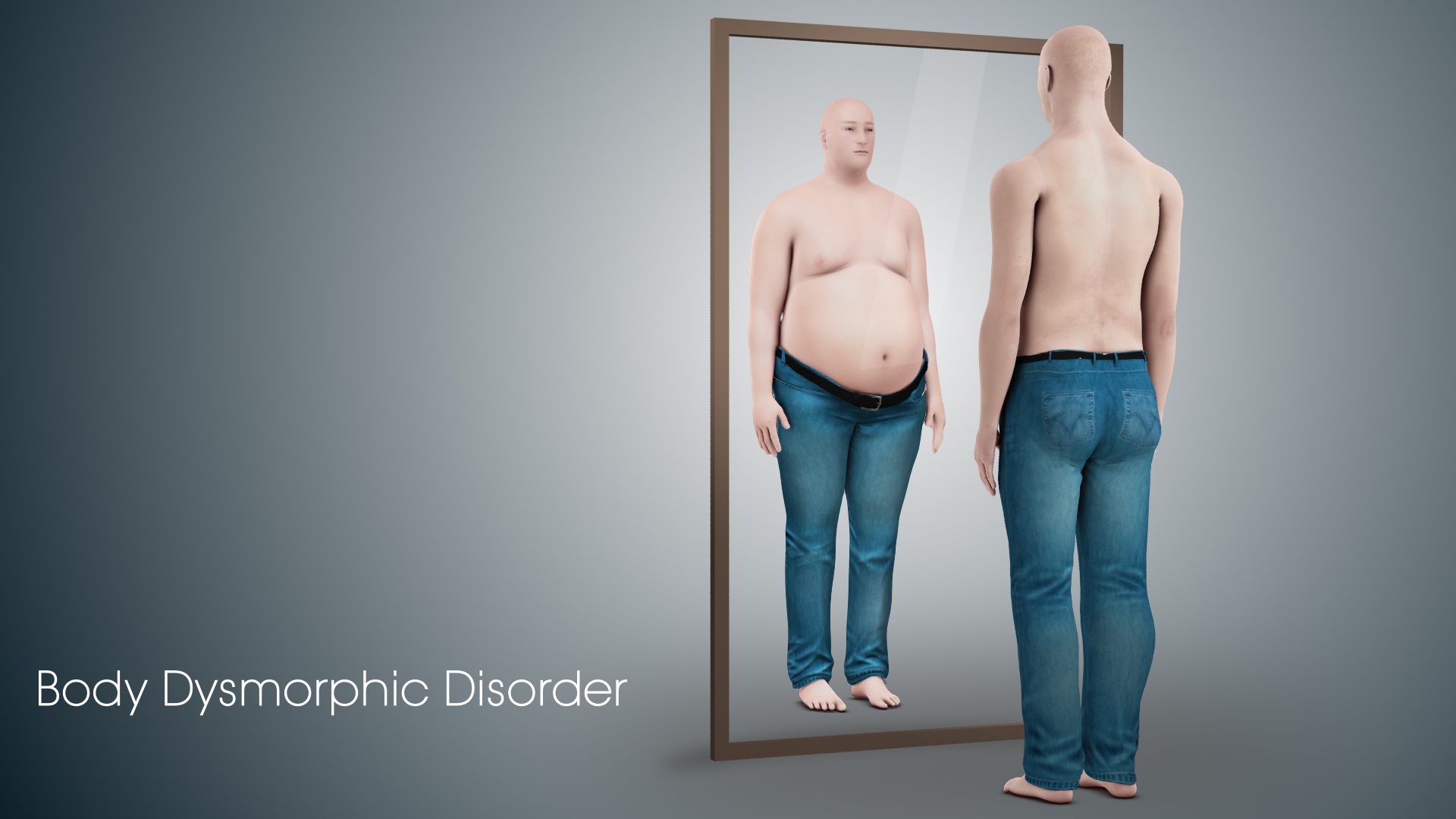Body dysmorphic disorder (BDD) is a definite mental disorder in which a person is obsessed with either a minor or imagined defect in the appearance of the person which others do not even notice. People suffering from this disorder feel anxious and ashamed and avoid social exposure. It causes a lot of distress and affects the ability to function in daily life. BDD can affect people at any age but it is most commonly seen in teens and young adults. It affects both men and women. It is a chronic disorder.

Symptoms
Some of the symptoms of BDD are as follows:
- Strong belief that there is a flaw in the appearance that makes a person look ugly or deformed
- Engaging in behaviour that is repetitive and time consuming like looking in the mirror
- Being extremely obsessed with the perceived flaw which others don’t even notice
- Feeling self conscious and anxious around other people
- Repeatedly picking at the skin or at the perceived flaw
- Spending a lot of time in trying to conceal the flaw
- Experiencing problems at work or school or with other people because of the obsession with the perceived flaw
BDD can sometimes seriously affect daily life and it can also lead to depression.
Causes
Specific cause of body dysmorphic disorder are not known but it may be associated with
- Chemical imbalance in the brain
- Genetics if there is a family history of depression or obsessive compulsive disorder or BDD
- Traumatic experiences relating to appearance in the past
Treatment
Treatment for body dysmorphic disorder usually includes a combination of cognitive behavioral therapy and medication. Cognitive behavioral therapy focuses on helping one manage the symptoms of BDD by changing the way of thinking. It helps one learn what type of negative thoughts can trigger the symptoms and teaches a different way of thinking and dealing with the habits. There is commonly no specific medicine for BDD but medicines that help in treating other mental disorders such as depression are effective.
Complications that could often arise from this condition are depression, suicidal thoughts, substance abuse, eating disorders, obsessive compulsive disorder and anxiety disorder. It may be difficult to prevent this disorder but if identified early, it can be treated and the symptoms and effects can be minimised.
Disclaimer: The information in no way constitutes, or should be construed as medical advice. Nor is the above article an endorsement of any research findings discussed in the article an endorsement for any of the source publications.
Sources-
- https://www.nhs.uk/conditions/body-dysmorphia/
- https://www.webmd.com/mental-health/mental-health-body-dysmorphic-disorder#2
- https://www.mayoclinic.org/diseases-conditions/body-dysmorphic-disorder/symptoms-causes/syc-20353938
Dependent personality disorder is an anxious personality disorder in which people develop symptoms of anxiety when they are not around other people.
Read More..
… because every individual is unique.
“If you’ve met one person with autism, you’ve met one person with autism.”
Read More..











